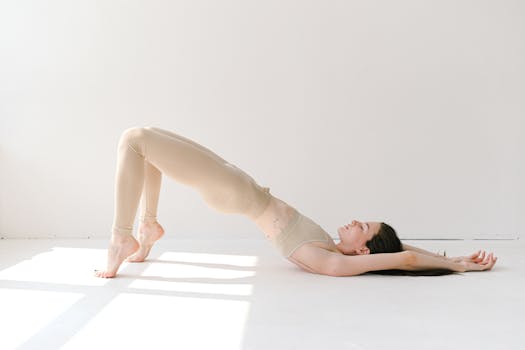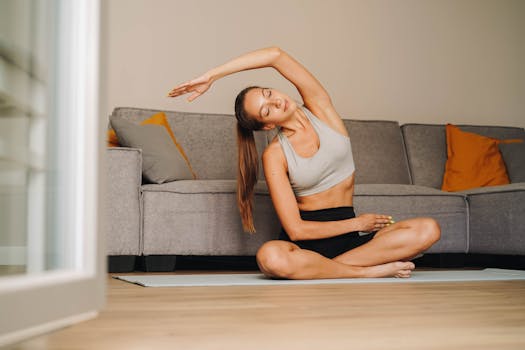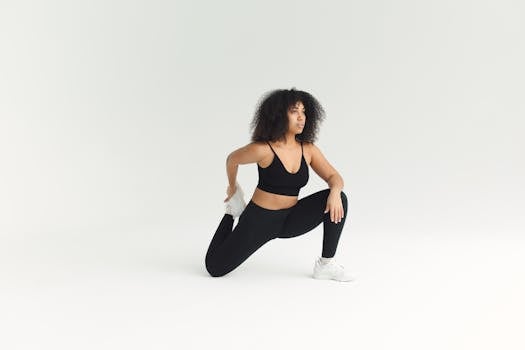
From Mat to Mind: How Yoga and Pilates Transform Your Mental Well-Being
Yoga and Pilates, Yoga and Pilates has been a game-changer for my mental health. As someone who’s struggled with anxiety and stress, I’ve found that these practices have helped me cultivate a sense of calm and clarity that I never thought possible. But what exactly is it about yoga and Pilates that makes them so beneficial for our mental well-being? In this article, we’ll explore the ways in which these practices can transform our minds and improve our overall health.
The Power of Mindfulness

One of the key benefits of yoga and Pilates is their emphasis on mindfulness. By focusing on the present moment and letting go of distractions, we can cultivate a sense of awareness and calm that’s hard to find in our busy lives. This mindfulness can help reduce stress and anxiety, improve our mood, and even boost our self-esteem. But how exactly does it work? Let’s take a closer look.
When we’re mindful, we’re fully engaged in the present moment. We’re not worrying about the past or stressing about the future. This allows us to tap into our inner strengths and resources, and to approach challenges with a sense of curiosity and openness. By being more mindful, we can also become more aware of our thoughts and emotions, and learn to manage them in a healthier way.
The Benefits of Yoga for Mental Health

Yoga has been shown to have a positive impact on mental health in a number of ways. It can help reduce symptoms of anxiety and depression, improve our mood, and even reduce stress and inflammation. But what makes yoga so special? Let’s explore some of the key benefits of yoga for mental health.
First and foremost, yoga helps us develop a greater sense of self-awareness. By paying attention to our thoughts, feelings, and bodily sensations, we can gain a deeper understanding of ourselves and our place in the world. This self-awareness can help us develop a more positive and compassionate relationship with ourselves, and can even help us build stronger relationships with others.
Yoga also helps us develop greater emotional regulation. By learning to manage our emotions and respond to challenging situations in a more mindful way, we can reduce our stress and anxiety and improve our overall well-being. This emotional regulation can also help us develop a greater sense of resilience, and can even help us bounce back from difficult experiences.
The Benefits of Pilates for Mental Health

Pilates is another practice that’s been shown to have a positive impact on mental health. By focusing on core strength, flexibility, and body awareness, Pilates can help us develop a greater sense of confidence and self-esteem. But what makes Pilates so special? Let’s explore some of the key benefits of Pilates for mental health.
One of the key benefits of Pilates is its emphasis on body awareness. By paying attention to our physical sensations and movements, we can develop a greater sense of connection to our bodies and a greater sense of self-awareness. This body awareness can help us develop a more positive and compassionate relationship with ourselves, and can even help us build stronger relationships with others.
Pilates also helps us develop greater physical strength and flexibility. By building core strength and improving our posture, we can reduce our risk of injury and improve our overall physical health. This physical strength and flexibility can also help us develop a greater sense of confidence and self-esteem, and can even help us feel more empowered and capable.
Getting Started with Yoga and Pilates

So, how can you get started with yoga and Pilates? Here are a few tips to help you on your journey.
First and foremost, find a qualified teacher or instructor. This will help you learn proper technique and get the most out of your practice. You can find classes at local studios, gyms, or even online.
Second, start slow and be gentle with yourself. Yoga and Pilates can be challenging, especially if you’re new to them. Start with beginner classes and gradually build up to more advanced practices.
Finally, be consistent and make yoga and Pilates a regular part of your routine. Aim to practice at least 2-3 times per week, and ideally every day if possible. With regular practice, you can experience the many benefits of yoga and Pilates for yourself.







